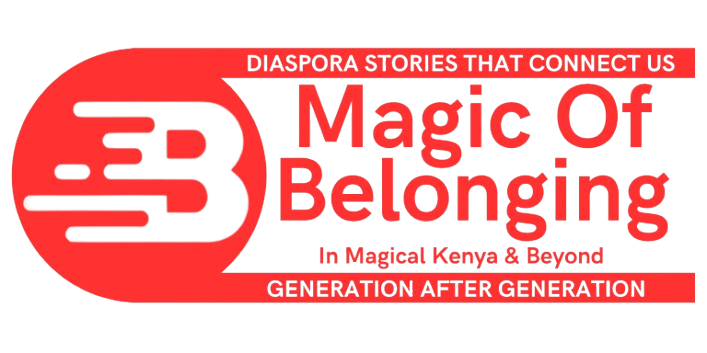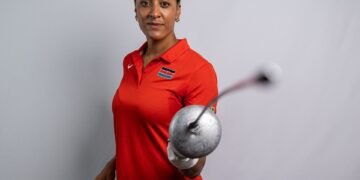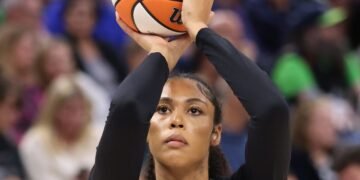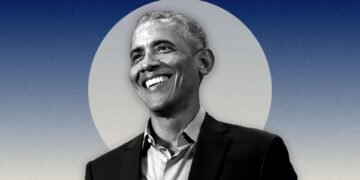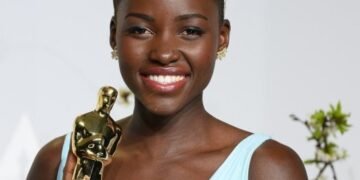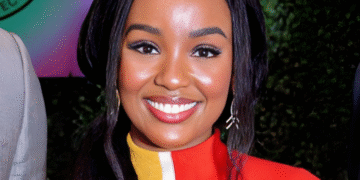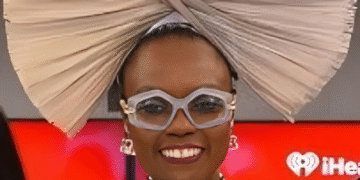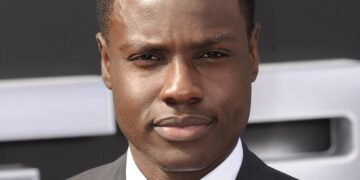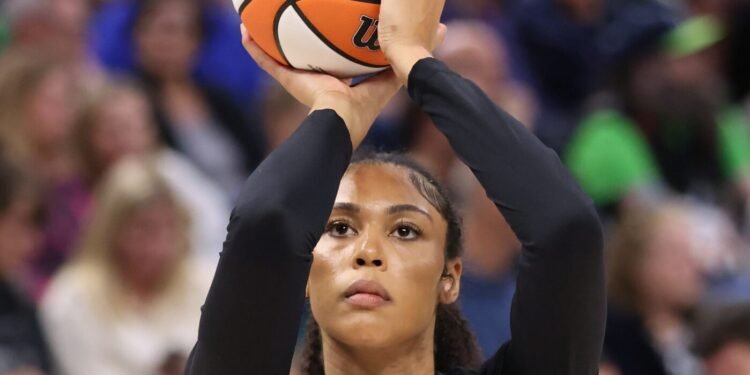Long before the bright lights of the WNBA, before the UConn headlines, the tunnel-walk outfits, and the box score breakdowns, Olivia Nelson-Ododa was just a tall girl in Georgia, barefoot on a high school track, racing her brother under a humid Southern sky.
She didn’t ask for shoes. Or permission.
She just ran.
“She lapped them,” her mother, Heather, would later recall. “She just kept sprinting.”
There was something in her stride—something more than athleticism. It was raw will. An instinct to keep going, to outlast. A fire that didn’t shout, but burned steady. And at the center of it all—whether she was running, blocking, studying, or styling—was a quiet truth: Olivia was running with Kenya in her bones.
Born Between Worlds, Raised for Greatness
Olivia’s story begins in Lansing, Michigan, but it doesn’t stay there long. Her childhood was shaped in Winder, Georgia, where her Kenyan father, Sebastian Ododa, and American mother built a home steeped in both discipline and dreams. Her father, once a star for the Kenyan national basketball team, brought with him not just height and hoops, but a deep cultural compass—a compass rooted in Kenya’s mountains, its work ethic, its endurance, and its faith in quiet perseverance.
Their household was a kind of high-performance greenhouse. Her older brother Alonzo chased pro basketball dreams. Her younger brother Isaiah followed suit. But Olivia, even then, was different.

She was a storm wrapped in grace. As a child, she would dunk toy balls into laundry baskets. As a teen, she averaged 19 points and 16 rebounds per game, earning Miss Georgia Basketball and McDonald’s All-American honors. On the court, she was relentless. Off it, she was composed—thoughtful, even shy.
But underneath the humility pulsed a generational fire. A Kenyan fire.
UConn and the Art of Becoming
When Olivia committed to the University of Connecticut, she walked into the furnace of a dynasty. UConn wasn’t just a college team—it was a pressure cooker, forged by the exacting
hands of Geno Auriemma. Not everyone survives that fire. Olivia didn’t just survive; she refined.
Over four years, she evolved from raw talent to defensive anchor, climbing to sixth in all-time blocks in UConn history. She became Big East Co-Defensive Player of the Year. She learned to lead. To finish strong. To breathe through the pressure.
“My African roots,” she said, “are a very special part of me that deserves to be highlighted.”
“You could see it,” one coach said. “That endurance—it wasn’t just physical. It was spiritual.”
She brought to each game the steadiness of someone shaped not only by American training, but by Kenyan storytelling—the kind where triumph doesn’t arrive loudly, but slowly, after effort, pain, and repetition. The kind of story her father had lived. The kind of story she was writing in real time.
Kenya in the Paint: A Heritage That Blocks Shots and Builds Style
Olivia’s father used to say she got her stamina from eating ugali, the Kenyan cornmeal staple. It was a joke, but also not. In Olivia, Kenya isn’t just a flag in the background; it’s her core conditioning.
That relentless motor on defense? That second and third effort on the glass? That silent belief that no matter how hard the game gets, she still has more to give?
That’s Kenya.
Even as she transitioned to the WNBA—first with the Los Angeles Sparks, then the Connecticut Sun—Kenya kept showing up. Not just in her play, but in how she carried herself. In the WNBA, she became known for her rim protection, her rebounding, and her ability to anchor a team quietly. No theatrics. No forced branding. Just work.
“I think Kenya taught me to value what’s built slowly,” she once shared. “It’s in how I play, how I dress, how I carry myself.”
Because fashion, for Olivia, is also heritage. Her tunnel walk outfits—bold, effortless, intentional—often draw from African prints, muted earth tones, and natural textures. She sees style as an extension of identity, a space to express the fullness of who she is: American ambition, Kenyan rhythm, global voice.
The World Tour That Took Her Deeper Home
The WNBA season isn’t year-round. So Olivia did what many pros do—she took her game abroad. In Australia. In China. And in those foreign cities, Kenya kept calling.
Among bustling markets and quiet solo nights in hotel rooms, she realized something profound: Belonging wasn’t a passport or a location—it was a lens. Kenya wasn’t just her father’s story. It was hers. It shaped how she felt in unfamiliar places. It grounded her.
“My African roots,” she said, “are a very special part of me that deserves to be highlighted.”
In these journeys, she began to see herself not as between cultures, but of them all. A complete person. A cultural bridge.
Not Just Basketball: Olivia as Mirror and Model
Off the court, Olivia could’ve followed many paths. With a 3.8 GPA, she once considered becoming a surgeon. She speaks with the poise of a professor and the quiet urgency of someone who understands the power of being seen.
To young girls—especially Kenyan-American ones—she represents something rare: a woman who didn’t choose between her identities, but built her power by honoring both. She is a walking manifesto that heritage isn’t baggage; it’s armor.
And she wears it well.
A Flame That Doesn’t Flicker
As Olivia’s WNBA career unfolds—blocking shots, grabbing rebounds, and lifting teams—she continues to build a legacy defined not by noise, but by substance.
Kenya may not yet appear in her jersey’s stitching, but it’s in her soul. In the tireless legs that run both ends of the court. In the quiet gaze before a defensive stand. In the bold prints that speak before she does.
She is the echo of her father’s footsteps on red Kenyan soil. She is the soft pride of a mother watching her daughter outgrow every doubt. She is the global dream—born in America, rooted in Kenya, raised by basketball.
Olivia Nelson-Ododa is not just playing the game.
She’s carving a path—one sprint, one block, one quiet Kenyan fire at a time.
